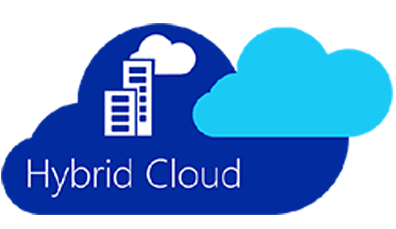Organizations choose hybrid cloud computing to enjoy the best of what both public and private cloud services and off- and on-premises infrastructure can offer. They have the advantage of putting each type of cloud service where they excel and choosing which operations they can keep within or off their premises. If your organization has been planning a switch, you might want to consider hybrid cloud systems for these six reasons.
1. Better Security with Hybrid Cloud Computing
Hybrid cloud network security allows organizations better control over their data, limiting its exposure. They can also control their data better by adjusting their private cloud settings to suit their needs. The hybrid setup also allows organizations to allocate redundant cloud storage, which is critical in data backup and disaster recovery.
Hybrid cloud services include centralized management, which further strengthens security measures. These measures usually cover automation, encryption, endpoint security, and access control. Even if the data still need to go to the public cloud from its private cloud storage, the encryption will ensure its safety throughout the process.

2. Improved Scalability
Organizations can scale their use of the hybrid cloud computing services as needed. They can also control their data better because they can adjust their private cloud settings to suit their needs. They can hand over control of their less sensitive data to a third-party provider. Scalability is cited as one of the top benefits of cloud adoption.
It will be easier for organizations to assign which parts they should handle and which should be entrusted to the providers in a hybrid cloud setup. They can agree on it formally during negotiations with the providers.
3. Lower Costs with Hybrid Cloud Computing
It is cheaper and easier to scale up with hybrid cloud systems. As a result, it encourages organizations to grow sooner and increase their bottom line. It is different from on-site storage, which might slow down the organization's growth and cause them to miss many earning opportunities.
Hybrid cloud computing helps organizations store their critical and core data on their on-premises, private servers. They can offload less essential data to their provider's public cloud if they want to grow and scale their operations to meet demand from surges or long-term growth.
An excellent example of a hybrid cloud storage benefit is being able to pay more for the extra cloud resources the organizations use during a demand spike. Then later, when the demand returns to normal, the organization gets to pay less for the drop in the use of cloud resources.
4. Business Continuity
Hybrid cloud computing is critical to an organization's business continuity plan. This setup provides organizations backup data, a copy of operation-critical data saved in the cloud. It ensures that the business can at least continue normally with minimal downtime after a disaster, data failure, or surge in demand.
Despite fluctuations in computing needs, the organizations will not risk overloading their private services, lowering the risk of server downtime.
5. Better Fit for Remote Work Setups
It is estimated that remote work opportunities will continue to grow through 2023. At the end of 2022, 25% of all American professional jobs will be set up remotely. Hybrid cloud computing supports remote work setups. It provides remote employees access to data, often stored on the public cloud and secured with logins for better control.
As remote work grows, hybrid cloud systems will make organizations more flexible and attractive to top recruits from anywhere in the world. These systems also ensure efficiency and productivity without risking sensitive data, which can remain stored on private servers.
6. Increased Agility from Hybrid Cloud Computing
The business landscape went through a lot of changes during the pandemic. These changes continue to happen even while the world is recovering from COVID-19.
Organizations can do better if they become more adaptive to change with the help of a hybrid cloud model. Because this model does not have the usual limitations of an on-premise private server, it easily allows organizations to accommodate a demand spike or any changes that require more computing workload.
Do you want to switch to hybrid cloud computing now? Look for a cloud computing service provider that can give you the benefits mentioned above, like Swift Systems.
Here at Swift Systems, you can find a partner in determining the right hybrid cloud strategy for your business needs. We can help you remain in control over your core data while entrusting us with data that will make your operations more efficient and supportive of your changing computing needs. Contact Swift Systems today to book a technical expert for a free consultation!
